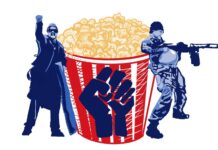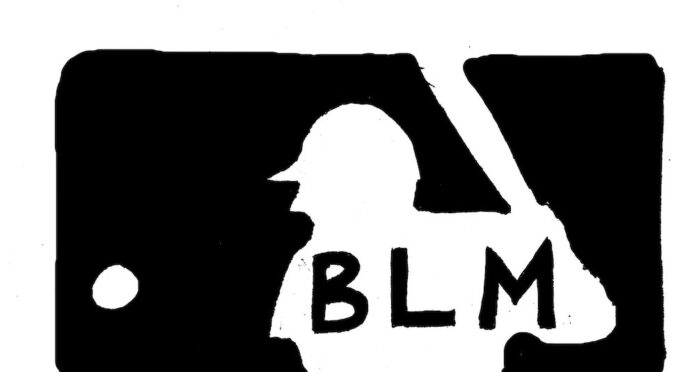Baseball is America’s pastime. For over a century, through peace and war, prosperity and despair, one thing has remained constant: baseball. President Franklin Delano Roosevelt, in the midst of WWII, composed a letter to then-commissioner Kenesaw Landis in which he wrote, “I honestly feel that it would be best for the country to keep baseball going.” Nearly 60 years later, with the ashes of the Twin Towers still lingering in the air, America rejoiced watching the ball soar off Mike Piazza’s bat and over the center-field wall of New York’s Shea Stadium, granting the Mets the lead in their first game back since the Sept. 11 attacks. Whenever America has needed it, baseball has been there. The steady continuity of baseball is comforting, but it’s time to examine where it has fallen short. The answer? In the same place that America has: Major League Baseball (MLB) has a long and ugly history of racism.
Jackie Robinson famously broke the color barrier in 1947, becoming the first person of color to play in the MLB. For decades following his debut, however, Black players in the MLB were not treated as equals. Although institutional racism in the sport has been acknowledged, it has not changed the fact that, as former Orioles and Diamondbacks center fielder Adam Jones put it, “baseball is a white man’s sport.” MLB’s most pressing issue has always been its history of avoiding social justice issues. That all changed in 2020.
The MLB came out swinging (pun intended) this year. Through social media posts, speeches, advertisements and protests, the MLB has made clear their unequivocal support of the Black Lives Matter (BLM) movement. They wrote “BLM” on the dirt of the pitcher’s mound and on outfield walls, postponed games this season to show their support and donated over a million dollars in support. Teams have boycotted games wholesale during protests over police brutality. This has been met with widespread approval from the players, a mixed reaction from the fans and disapproval from the president. That didn’t stop them.
At a time like this, where so many major corporations and well-known figures have voiced their support for BLM, the MLB’s actions might seem ordinary, possibly not even noteworthy. People have claimed that the MLB is doing this to be “trendy”; others have made the argument that they’ve done “too little too late.” While these arguments have truth to them, it’s vital to acknowledge that the MLB has made an enormous leap. This is a sport that has a history of racism going back further than most of its eldest fans can recall, further than any other major American sport. This is a sport that, more than any other, shares a history with America. That is why MLB’s support of BLM is so significant. If a sport as storied and ingrained in American society as baseball can change its ways, what does that mean for America? What does it mean to the lifelong baseball fan who can no longer turn to baseball as a “distraction” from social justice movements? What does it mean to Black children who see teams composed almost entirely of white men boycott games because their lives matter?
It means that change can happen. It means that someday, hopefully, Black people can feel the same way in this country as they should in a dugout: like they are part of a team. Because as we have seen throughout this year, although many of the divides in our nation are racial, change happens when we stand together. This game will never be perfect, and neither will our country. But perfection has never been what baseball is about. In a game where the best in the world fail seven out of 10 times, all you can do is keep trying. That is what the MLB is doing, and what our nation is doing: trying to be better. There is nothing more central to baseball than striving to be better in the face of adversity and persistent failure. Is anything more American?
![]()



































